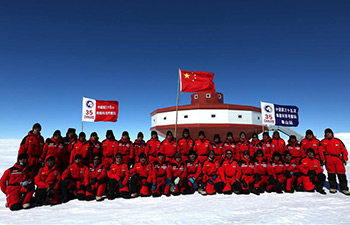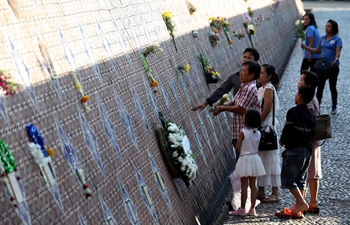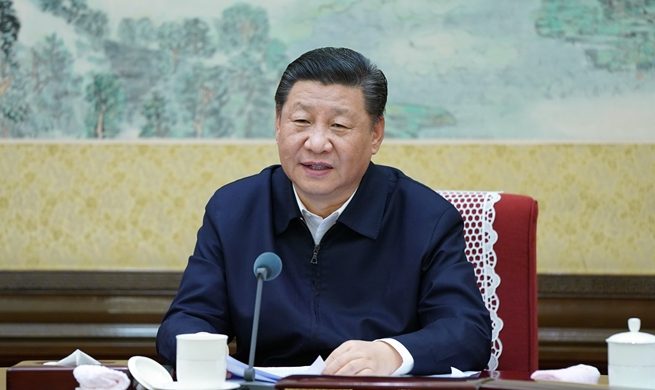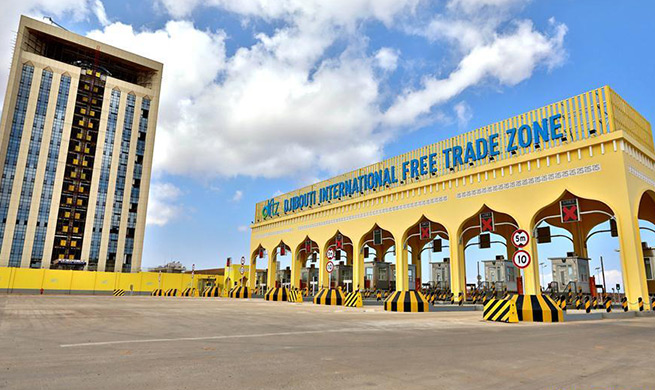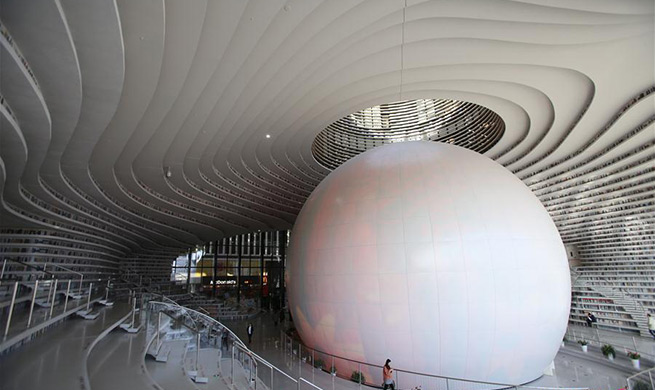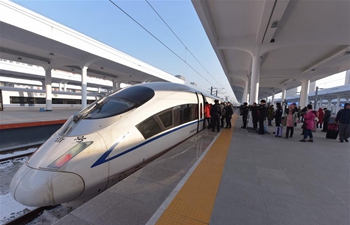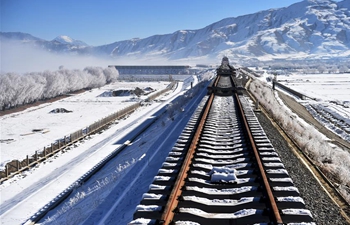by Zhang Yuliang, Tichaona Chifamba
HARARE, Dec. 27 (Xinhua) -- The scepter of the 2008 economic turmoil returned to haunt Zimbabwe in 2018 when most sectors of the economy were affected by a downturn.
Despite efforts by President Emmerson Mnangagwa to make the country more attractive for investment, investors remain on the sidelines wanting to be sure of the direction the country is taking before committing themselves.
ECONOMIC CHALLENGES
In the meantime, prices of basic commodities have skyrocketed and ordinary people are feeling the pinch as their income has been eroded by rising inflation.
With former President Robert Mugabe removed from power in November 2017, many people hoped that his successor, President Mnangagwa, would steer the economy on a growth trajectory.
Mnangagwa promised to open up the political space and the business community was hopeful that the economic and re-engagement policies he was embarking on would yield higher dividends for the country.
He also promised to promote the ease of doing business, with one of the first major steps being to amend investment laws to allow foreign companies to own higher shareholding than the previous threshold of 51 percent local and 49 percent foreign which Mugabe had been running along with.
The country continued to reel from economic challenges which included low capacity utilization of below 50 percent in industries.
A foreign currency squeeze compounded by local currency shortages made the situation worse with many productive hours being lost as workers spent time in bank queues.
Motorists are also spending lots of time in fuel queues as both petrol and diesel remain in short supply because of the foreign currency constraints.
Bread, a staple in the country, is also in short supply after the Reserve Bank of Zimbabwe failed to timeously provide foreign currency to foreign wheat suppliers.
RE-ENGAGEMENT EFFORTS
Mnangagwa has during the course of the year promised to ease the problems through rebuilding investor confidence by re-engaging with the West, including the European Union, the United States and the United Kingdom.
The year began with Mnangagwa attending the World Economic Forum in Davos, Switzerland. His presence was widely hailed as a great success as Zimbabwe began sloughing off the pariah state tag and assuming that of a state under rebirth and full of promise and opportunities.
Analysts said a lot of international goodwill was created by the trip, the first by a Zimbabwean head of state, amid high expectations that the country could return to its former glory as the "jewel of Africa."
University of Zimbabwe political science professor Charity Manyeruke said the immediate success of the Davos trip had to do with the country's image in terms of its willingness to re-engage with the international community.
Economist and former president of the Zimbabwe National Chamber of Commerce Luckson Zembe said the president had scored points on a number of issues during the Davos trip.
"The presence itself of the president created an opportunity to present the Zimbabwean story and re-engage with the international community," he said.
Speaking of the Davos trip, Mnangagwa said Zimbabwe was once again a respected country and global investors were genuinely curious about opportunities in the new Zimbabwe.
Mnangagwa also early in the year sent his emissary, Foreign Affairs and International Trade Minister Sibusiso Moyo to the European Union, the United States and to the United Kingdom and the Commonwealth in his re-engagement efforts.
The re-engagement process, however, has been slow.
The U.S. government appears to have been unfazed by the diplomatic overtures and in July, on the eve of the country's tripartite elections, extended sanctions on the Zimbabwean government pending the fulfillment of a list of reforms, among them the holding of free and fair elections.
American observers to the July 30 elections condemned them as not free and fair and added that the country had lost an opportunity to enhance the re-engagement process.
The Commonwealth and EU observer missions also noted concerns in the conduct of the elections.
The situation was compounded by the deaths of six people on Aug. 1 following demonstrations intended to push the Zimbabwe Electoral Commission to announce presidential results quickly.
An international commission of inquiry headed by former South African President Kgalema Motlanthe blamed the police and military for the deaths while at the same time accusing the opposition party MDC Alliance of instigating the demonstrations which later turned violent.
The Commonwealth wanted to use the conduct of the elections as one of the benchmarks for Zimbabwe's possible return to the Commonwealth which it left in 2003 over governance issues and is yet to pass its verdict on the issue.
OUTLOOK FOR 2019
An El Nino-induced drought forecast for the 2018/19 season has dampened the spirits of many farmers.
Although the Zimbabwean government has assured the people that there are enough grain reserves, there may be need to offer supplementary food to affected households.
A good tobacco crop may help ease foreign currency shortages if the rains are kind enough to allow it to mature. Failure of the crop will have a serious impact on foreign currency earnings for the country and leave many farmers poorer.
Mining and tourism remain potential foreign currency earners, but high demand for the hard currency by industry and fuel consumers may result in curtailed economic growth.
The government will also have to deal with potential labor problems as workers are demanding higher salaries in view of rising prices of basic commodities, healthcare, education and shelter.
Some workers, such as junior doctors in public hospitals, have already demanded payment of salaries in U.S. dollars despite the fact that the country is not generating enough foreign currency to sustain government operations, infrastructure development and provision of social services.
Inflation, which was at 20.85 percent in October, rose to 31.01 percent in November, a 10-year high since 2009.


